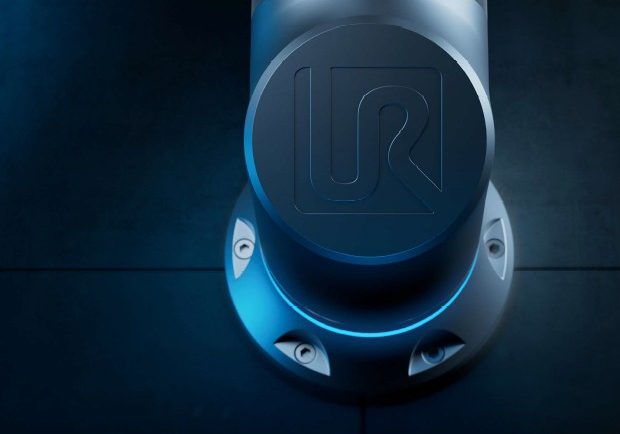In the field of medicine in particular, we are dealing with an enormous amount of data. For a long time now, no doctor has been able to survey this abundance alone. Here, Artificial Intelligence with its strong computing ability offers quick solutions. But that’s not all: Artificial Intelligence is a fundamental factor in diagnostics, but also in the logistics of a hospital. Even in operations and new instruments, Artificial Intelligence is an increasingly important factor. Dr. Narges Ahmidi works at the Fraunhofer Institute on the interface between medicine and Artificial Intelligence. She reports on the current status, on the successes, but also on what still needs to be done until the digital hospital of the future.
Digitalization has also brought about major changes in the medical industry – but promises even greater ones. How do you generally assess the mood in the medical field in terms of the possibilities of using technologies such as Artificial Intelligence (AI) or machine learning?
The opinions are divided: some clinicians are very positive, supportive and are eager to have AI helping them improve patient care. Others, on the other hand, are hesitant and conservative about accepting new technologies. From my experience, clinicians in university hospitals and established clinics have a more positive attitude towards new technologies, as they have to take care of large number of patients in critical conditions, under time pressure and limited resources. So, it is more obvious to them how AI can immediately improve the everyday task of patient care.
What problems do we still face today? Is it mainly technological limitations or even legal-ethical?
Many problems still remain a challenge:
- IT infrastructure in hospitals and clinics, for example lack of network/internet access for all corners of the hospitals.
- Lack of connection between medical devices: some are old, some are not designed to be connected to a network, or transfer their measurements to a computer. So still a human needs to be involved in reading information and typing them in a digital format.
- Hospital history of almost all past treatments are not accessible in a clean and digital format, therefore it becomes extremely time-consuming or even impossible to generate new medical knowledge from years of patient-doctor interactions. So, years and years of clinical knowledge is trapped on printed papers, in difficult-to-read hand writing, and even if digitally stored in very inefficient structure, as they were not designed to be used for extracting medical knowledge, they were designed for billing/reimbursement purposes.
- Patient data privacy is designed to protect patients, but due to lack of proper definition of “privacy” it has become an obstacle for advancing medical knowledge. For example, we can learn a lot from the past hospital records, about previous pandemics, about rare diseases, etc., all while protecting patient privacy, e.g. without accessing patient identifiers such as their name and address, etc., but yet GDPR privacy rules prevents anyone from even looking into the past without individual patient consent, which renders impossible when one needs to consent tens of thousands of people involved in a past outbreak.
In which areas is Artificial Intelligence already in use today? I can imagine that having the digital helper at your side plays a major role, especially in the evaluation of data?
There are quite a few examples for the use of AI:
- Hospital triage: assessing the severity of a patient situation at admission and assigning proper level of intense care.
- Medical imaging: automatic cancer segmentation in radiology images, measuring all sort of things in images (e.g. ultrasound of fetus, counting blood cells)
- Calculating risk scores for different treatments, e.g. calculating risk of an open heart surgery for a patient
- Diagnosis: diagnosing variety of diseases from radiology images or pathology images, detecting abnormality from heart or brain signals (e.g. EKG, ECG signals), detecting activity levels from smart wearables, etc.
- Early-diagnosis: diagnosing a disease even before its symptoms show up, such as organ failures.
- Reconstruction of missed organs (e.g bones or teeth) for designing customized implants
For several years now, there have been apps for smartphones that offer themselves with the use of Artificial Intelligence for initial diagnosis. I’m thinking, for example, of the Ada app. What do you think of such apps? Is this the possible start of a doctor’s appointment in the future, where we no longer have to go to the doctor because we can simply ask our smartphone?
Maybe, one day, but still a long way to go.
Apps together with smart wearables can serve as good assistants, e.g. for senior people living independently to know when to take their medication, how to get back home, and if they are in harmful situations to automatically call emergency services.
But, for an App to diagnosis more complicated matters such as cancer, or infection, etc, we need a lot more sophisticated watches/devices that can remember your entire past medical history, have a detailed knowledge-base of many similar people to you, and also have the option to collect detailed and accurate information from your body (e.g. inside and outside symptoms), etc. Currently, this is now only possible by a human doctor.
On top of that, medicine is not only about diseases and medications, there is a strong human connection, empathy and trust between patient and doctor, that is going to be difficult to be replaced by AI.
How do you yourself further develop AI processes at the Fraunhofer IKS in order to make Artificial Intelligence better, i.e., more self-critical?
In addition to our scientific AI network, we are also in close collaboration with hospitals, clinics, doctors, nurses, medical technology developers, medical device companies, and patients. We have frequent conversations with them, to understand their priorities, worries, risks and in general their expectations from AI.
We then translate these expectations into mathematical formulas, and integrate them into the design, training, and validation of AI.
Besides, we also investigate the inner-bowels of the existing AI algorithms and show by evidence when and how they become fragile and do not function as expected. This we hope leads to better reporting of capabilities of AI by scientists, limit the over-promise of AI, and hopefully help to design a proper standard framework for measuring limitations of new algorithms.
What role does the uncertainty of the AI algorithm still play in your work practice today? How do you deal with this?
For clinicians, AI uncertainty is an important matter. They expect to be given a proof that the AI is both correct and confident when faced with “routine” clinical questions, that AI is more helpful than an additional distraction.
An over-confident AI tool is not desirable, especially when it turns out to be wrong with its recommendations. This might lead to catastrophic errors on the patient care side. A low confidence AI is also not good, obviously why does any doctor want to listen to such recommendation.
How can the use of Artificial Intelligence make everyday work in intensive care units easier? Especially in times of enormous workload and staff shortages, could lucrative potential for AI be hidden here?
Absolutely.
ICUs can improve even with simplest AI solutions, e.g. there could be bedside devices that just summarize each patients past for the next doctor. This is extremely useful and important.
AI can help with automatic detection of emergency situations or with “early” diagnosis of future bad events, or with prioritizing nurses schedule when usually one nurse has to take care of multiple patients in critical conditions, or with helping to propose the type and timing of the next treatments.
Topic Prevention: How can AI already be made usable in the field of medical care? What other possibilities are there for the future?
It is a known fact that for many diseases if they were diagnosed earlier, then patients would have had higher chances to survive. AI can help. AI can discover development patterns of diseases and warn the patient and doctor even if the main symptoms of the disease has not become obvious yet.
We can also use AI to measure the effect of past preventative measurements, policies or protocols and see whether they were really needed and effective or not.
Topic everyday practice: How are AI-nourished robots already used today to assist the doctor during operations?
A few examples come to my mind:
Robotic surgeries, allowing a lot more accurate and stable hand movements or providing a reliable additional hand to help surgeons in hours-long surgeries.
– Making implants right inside operating rooms individualized for patients body
– Designing surgical tools that take the hand tremor away for neuro-surgeries
What are your personal no-goes when it comes to the increased use of AI or robots in everyday medical practice?
We should not over-promise what AI is capable of. Patient privacy is deeply important. Patients should be informed about their treatment process, especially when parts are done by robots or AI.
Do you also have concerns about the misuse of these many technologies, especially in the highly sensitive field of medicine?
There is always a worry that any positive science might fall in the hands of abusers. For example, if the abuser can estimate someone is going to have cancer in 10 years, they might use this information to discriminate against the person or blackmail them. Insurance companies, hiring agencies, hospital admissions, banks, … might render these patients “high-risk” and discriminate against them.
Finally, what is your utopia of an ideal hospital in the future that uses the best possible use of digital technologies?
In my view an ideal hospital is the one
– where they can access my entire personal medical records quickly and nothing is forgotten,
– where doctors consult with AI to make sure I am diagnosed accurately, by considering my particular medical history,
– where my fate is not dependent on the number years of practice a doctor or a nurse has,
– where I am given the correct and most efficient treatments, on-time, and where I am informed properly about risks at every step.











Um einen Kommentar zu hinterlassen müssen sie Autor sein, oder mit Ihrem LinkedIn Account eingeloggt sein.